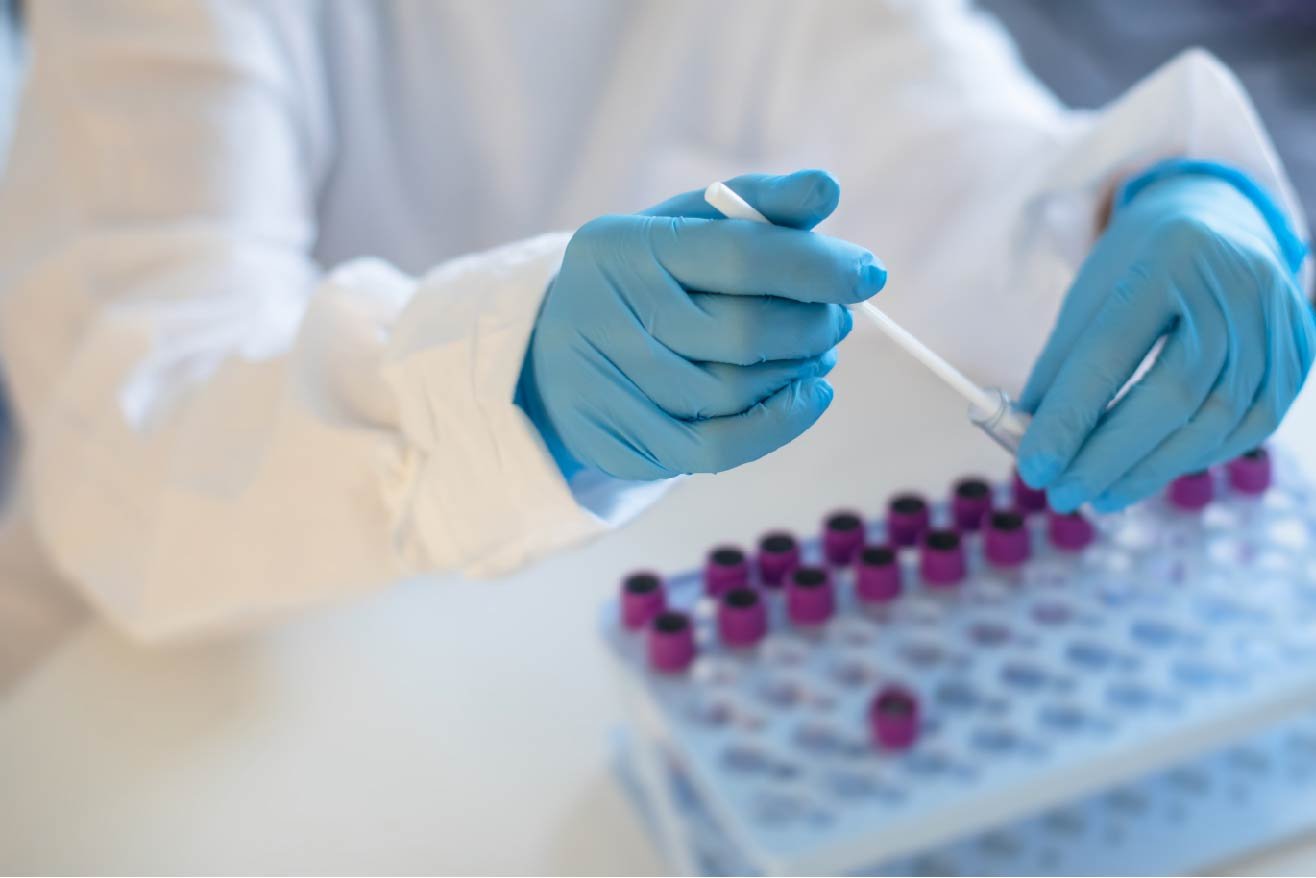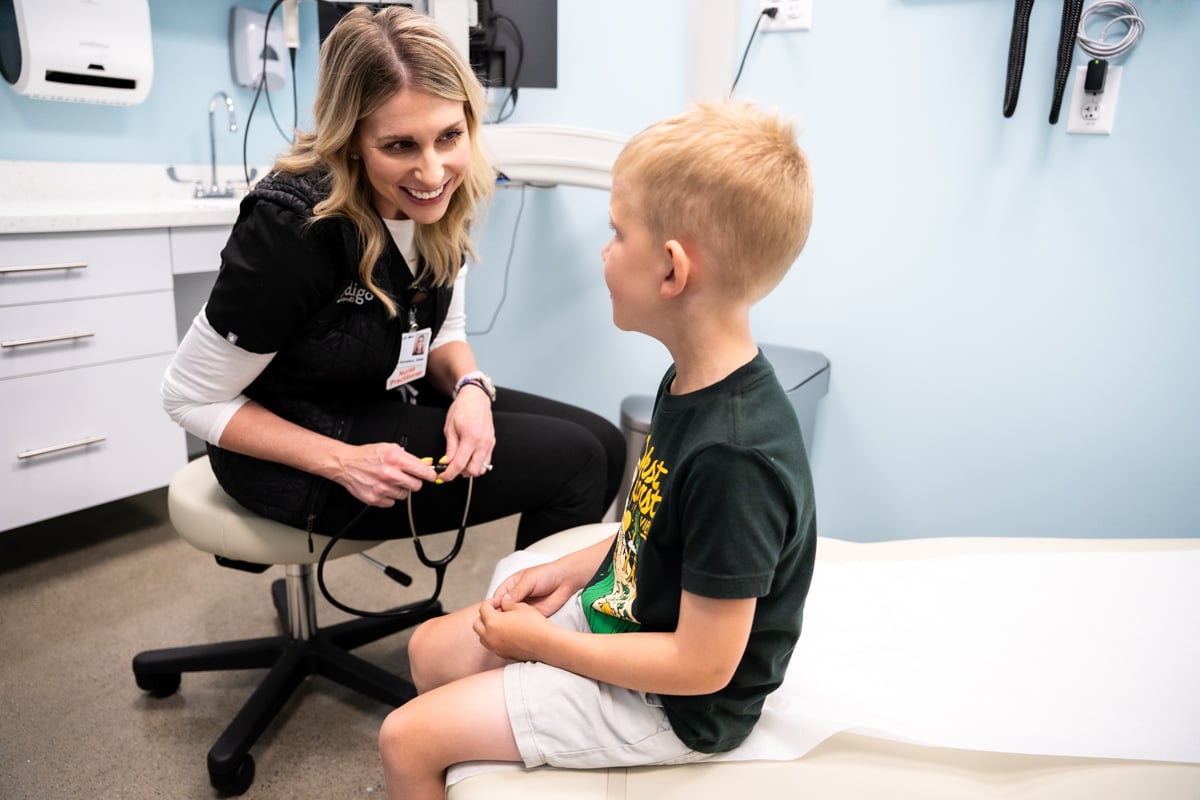You’ve seen the headlines. Monkeypox has arrived in the U.S. and the Pacific Northwest, along with some misinformation about the infectious disease that has a lot of people on edge. According to a recent survey by the Annenberg Public Policy Center, around 1 in 5 Americans worry they will contract monkeypox. Survey results also indicate most people know little about the disease.
“We’re all still reeling from and dealing with COVID-19, so it’s no wonder people are concerned about rising cases of monkeypox,” said Kim Silverman, Medical Director for Indigo Health . “Fortunately, this virus is much less contagious than COVID-19, and symptoms are typically mild. But it’s important to be aware of the risks and symptoms of monkeypox and know how to protect yourself and others.”
What is monkeypox?
Monkeypox a virus that is genetically linked to smallpox, although it is much less transmissible and usually less severe. Monkeypox typically causes flu-like symptoms and a rash that looks like chickenpox.
The rare infectious disease occurs mostly in central and western Africa, but recently found its way to the U.S., Europe and Australia. According to the Centers for Disease Control and Prevention (CDC), as of mid-August 2022 there were nearly 12,700 confirmed cases of monkeypox in the U.S., including 272 confirmed cases in Washington state. There have been no fatalities in the U.S., and only a few deaths have been reported in other countries.
How does monkeypox spread?
According to the CDC, monkeypox can be transmitted in three ways:
- From person to person. Monkeypox spreads mostly through close, intimate contact with an infected individual, including skin-to-skin contact with a monkeypox rash and through respiratory secretions.
- Between animals and humans. The virus can be transmitted from animal to human through bites or scratches, or through direct contact with an animal’s blood, bodily fluids or monkeypox lesions. Infected people can also spread the virus to animals. The CDC advises that household pets that come in close contact with a symptomatic person should be kept at home and away from other animals and people for three weeks from initial contact.
- Through contact with contaminated items. You can also contract monkeypox when you come in contact with items used by an infected person, including bedding, clothing, towels and other shared items.
Who is most at risk for contracting monkeypox?
For most people, the risk of getting monkeypox is low. According to the CDC, almost all the cases in the current outbreak have been in men who have sex with men. While monkeypox is by no means unique to this community, the virus’ close-contact spread has made it more prevalent among gay and bisexual men.
Who is at risk for serious complications from monkeypox?
Monkeypox is typically a mild disease. However, some people are at high risk for serious illness if they contract the virus, including:
- Individuals with weakened immune systems.
- Children under the age of 8.
- Women who are pregnant.
Is monkeypox a sexually transmitted infection?
Monkeypox is not considered a sexually transmitted infection (STI) or sexually transmitted disease (STD).
While sexual contact makes the spread of the virus more likely, monkeypox can be spread from skin-to-skin contact that isn’t sexual or intimate.
What are the symptoms of monkeypox?
Symptoms of monkeypox usually start within three weeks of exposure to the virus. Early signs of monkeypox may include:
- Fever or chills.
- Headache and muscle aches.
- Swollen lymph nodes.
- Fatigue.
- Respiratory symptoms, such as sore throat, congestion or cough.
A rash will often develop after a few days.
- The rash may first look like pimples or blisters and may be painful or itchy.
- The rash may be located near the genitals or anus or on other areas of the body, including the mouth.
- Bumps or blisters will eventually crust over and fall off.
Infected individuals may experience all or only a few symptoms. Some people only have rash.
Even if you don’t show many signs of infection, monkeypox can still be spread through prolonged close contact.
How long does monkeypox last?
Most cases of monkeypox will resolve within two to four weeks. The virus can be spread from the time symptoms begin until the rash has healed, scabs have dried and fallen off, and healthy skin has formed.
If you think you have monkeypox or test positive for the virus, you should take the following steps to keep from spreading the infection:
- Stay home and away from other people and pets.
- Do not share bedding, towels, dishes or utensils.
- Cover your rash with gauze or bandages.
- Wear a well-fitting mask if you do have to come in close contact with others at home.
- Wash your own laundry and dishes.
- Contact your sex partners and people you have had close contact with since the start of your symptoms.
- Avoid domestic and international travel and travel on public transportation.
Can monkeypox be treated?
There are no treatments specifically for the monkeypox virus. In most cases, symptoms are mild and an individual with the virus will fully recover within a few weeks without the need for medical treatment.
If you have symptoms, there are over-the-counter remedies that may ease your discomfort, including:
- Pain and fever reducers, such as ibuprofen (Advil, Motrin) and acetaminophen (Tylenol).
- Oatmeal baths to relieve rash dryness and itchiness.
Because monkeypox and smallpox are genetically similar, antiviral treatments and vaccines already developed and available for smallpox may be considered for individuals who have monkeypox, have been exposed to the virus or are at high risk of severe disease.
Your health care provider can assess your risks and determine if vaccination or antiviral treatments are right for you.
Do I need a monkeypox vaccine?
Vaccination is an important tool to prevent the spread of monkeypox, but that doesn’t mean that everyone needs one. Right now, the CDC does not recommend widespread vaccination against monkeypox. Vaccination may be recommended for close personal contacts of people with monkeypox, and those who have been exposed to the virus.
Learn more about the CDC’s vaccine recommendations.
How can I lower my risk of contracting monkeypox?
There are several ways people can prevent monkeypox infection. The CDC offers this guidance:
- Avoid close, skin-to-skin contact with people who may be infected with the virus.
- Avoid contact with bedding and other items contaminated with the virus.
- Wash your hands frequently with soap and water.
- Practice safe sex, including the use of condoms.
- Avoid contact with infected animals.
Will monkeypox be a widespread pandemic like COVID-19?
Monkeypox is a whole different animal from COVID-19. For starters, scientists already know how monkeypox behaves and how people can protect themselves.
Here are a few other things that sets monkeypox apart from COVID-19:
- Monkeypox doesn’t spread as easily between humans as COVID-19, it doesn’t attack the respiratory system, and it’s rarely fatal.
- Unlike COVID, monkeypox isn’t contagious until the affected person shows symptoms. That makes it easier to isolate infected individuals and stop the spread of the virus.
- Even with cases on the rise, medical professionals are not seeing the percentage of fatalities and severe cases that marked the early stages of the coronavirus epidemic.
- There is already an effective vaccine and antiviral drugs available to treat monkeypox.
Have symptoms? Indigo Health offers monkeypox testing
Testing is the only way to confirm you have monkeypox and help prevent its spread to others. If you have a new rash or other symptoms of monkeypox, you can be tested at one of our convenient Indigo Health locations.
An Indigo provider will take a skin swab of your rash and send it to our lab for testing. While you wait for test results, be sure to take precautions to prevent infecting others.
If you test positive for monkeypox, we can also help determine if vaccination or other treatments are appropriate.
Book an in-person appointment today or simply walk in. Indigo makes it easy to get the care you need when you need it.


